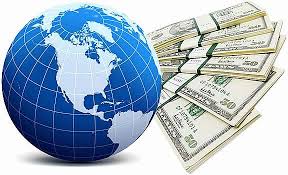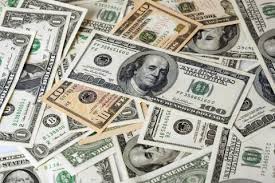Snippets, Snipes & Snides
29 May - 31 May 2006
Las Vegas Sands To Break Even In 5-8 Years?
The world's largest casino firm by market value, expects its Singapore casino to reach break even within five to eight years after the start of operations. The firm, which runs the Venetian in Las Vegas and a successful Macau casino, last week won the 30-year concession for the first of Singapore's two planned gambling resorts after promising to invest more than US$3.2 billion in what will be the world's most expensive casino. Bearing in mind that their first casino in Macau repaid itself in full within the first year of operations, the 5-8 year payback is more for the masses. How do you like it if you come out and say that the project will be profitable in a couple of years? (even if its true or plausible).... thta is not good PR. Its interesting that Sands almost immediately started work on the Marina Bay project - sigh, I guess they did not want anyone to start protesting the decision... its OK guys, you are in Singapore, not somewhere else in Asia, things don't flip-flop in Singapore.
Foreign Funds Sold US$5 bn
Emerging market equity funds were responsible for a whopping US$5 billion of the net outflows during the week ended May 24, or 1.74% of total assets, their worst outflow since May 2004, according to Emerging Portfolio Fund Research. The Boston-based company said on May 29 that inflation fears leading to uncertainty over US monetary policy and global liquidity conditions helped inspire the particularly sharp round of profit taking and panic selling in the second half of May, just as it did two years ago this month. Even the investor favorites in recent months, the BRIC equity funds that invest in Brazil, Russia, India and China, saw their first week of net outflows since EPFR began tracking them separately in October 2005. Europe Equity Funds, which invest in developed European equities suffered their worst outflows since May 2004 as investors pulled out US$1.7 billion. Japan Equity Funds had their second straight week of outflows, reducing year to date net inflows to just under $5 billion. US Equity Funds had only modest outflows on the week, but investors have pulled more than US$4 billion from these funds in the last two weeks. If you noticed, some markets suffered more than others, especially India. The present pullback is not the same for everyone. Please look at the vulnerability for each market in my blog on 8 May "Are We Bubbling Yet?"
Sell In May And Go Away
Many hedge funds may be wishing that they followed that advice and closed out positions given what's been a headache inducing, crappy month for many of them. For hedge funds, May has been a miserable month that may mark the end of earning easy money and the beginning of tough trading conditions. Nothing has gone smoothly in the US$1.2 trillion hedge fund industry since a sell-off in precious metals prices spilled on emerging markets and soon affected developed markets. In the absence of a real catalyst, analysts blame fears of inflation and rising rates for the sudden drop. Many of the world's roughly 8,000 funds lost between 3 and 6 percent in the first three weeks of May with some having seen swings of 10 percent or more. Now hedge fund managers, who earned strong returns by simply being long on equities, will have to make savvier stock picks, and any bets on commodities may have to be a little bit quicker with more moves in and out. That may be a shock for the legions of managers who earned more money in the first four months of 2006 than all of 2005 simply by jumping on trends that were too good to pass up. Losses weren't confined to metals however and that's what is making the month so treacherous. Global macro funds that bet on currencies, commodities and interest rates are said to have given up roughly 25 percent. Funds specializing in emerging markets and even mid-cap stocks were said to have given back as much as 50 percent.
skip to main |
skip to sidebar















tips, tricks, business, news, information, services, business, SEO, internet, websites, blogs, business, news, health, facebook, twitter, automotive, online marketing, unique, funny, zodiac, sport
Blog Archive
-
▼
2006
(308)
-
▼
May
(35)
- China A-Shares / Banks / Bad DebtsThe Bigger Pictu...
- UEM World-DisneyInexperience ShowingAs reported in...
- Snippets, Snipes & Snides29 May - 31 May 2006Las V...
- Bursa, Mesdaq & Bonus IssuesGood Move By BursaBurs...
- Lion Forest IndustriesAttractive Trading PatternsL...
- Top Hedge Funds EarnersMind Boggling NumbersYou ne...
- Asian Currencies On TenterhooksThe dollar's slide ...
- Sand In My FaceCasino IR Goes To Las Vegas SandsWe...
- WorldCup2006Brazil vs South AfricaIt is just befor...
- Snippets, Snides & Snipes22 - 26 May 2006Oops, UEM...
- Malaysia's Most Caring Employer AwardCannot Be A P...
- Disneyland In Johor?Trumping Singapore (Again)Prim...
- NetherlandsWorldCup2006The team is young, many wou...
- Events Searching For ReasonsThe Poor Man's Analyst...
- Mega M&A Deals In MalaysiaA Precursor Of Things To...
- Market Risk - Asia PacificMalaysia & India Example...
- Finally Some Smart CommentsDr Hilmi Yahaya, The Vo...
- Rebuttle To Comments By SC & BursaDesignation, Dis...
- HK Dollar's Peg Gotta GoEven Tsang Is WorriedHavin...
- My Problems Are Bigger Than YoursAbberations Revea...
- Asian Markets Opening CommentsThursday 18 MayBours...
- 2006 Top Buys #7Unexpected By ManyI cannot tell yo...
- KLSE Market Opening CommentsWednesday 17 May - Its...
- Is There A Commodities' Bubble?You Bet - Sell Your...
- KLSE Closing CommentsTuesday 16 MayWell, it was cl...
- KLSE Market Opening CommentsTuesday 16 MayWell, at...
- Microsoft's Unfathomable Share Price Running Out O...
- Asian Market Readings15 May 4.00pm Monday Tarot Ca...
- An Open Letter To Securities CommissionNeed To Ret...
- The Case For Japanese EquitiesGenuine Recovery Fin...
- Financial Decision-Making Mistakes
- Are We Bubbling Yet?Are Asian Markets Frothy...Inf...
- Quibbles Over Top Executive Pay
- Tallest Buildings As Leading Indicators
- Hey, Dawg ... What's In A Name?Googling For Google...
-
▼
May
(35)
No comments:
Post a Comment